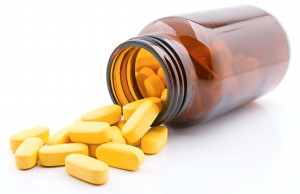You may have heard someone say that you should take a CoQ10 supplement. You may already be taking one. You certainly see a whole variety of CoQ10 products in the supplement aisle in your grocery store or rug tore. But should you be taking it, and if so, are you taking the right kind?

CoQ10 is a very important nutrient
What is CoQ10?
Coenzyme Q10 (aka C0Q10) is a fat soluble nutrient found in every cell in our body. We get some of this through our diet, but it also produced naturally in our bodies. CoQ10 is involved in producing cellular energy, and is most concentrated in the type of cells that have a high energy demand – the heart, liver, muscles and kidneys. Premature aging is considered one side effect of having too little CoQ10
There’s More Than One Type?
There are two forms of CoQ10 – ubiquinone, which is the “oxidized” form, and ubiquinol, which is the “reduced” form of the molecule. Studies suggest that ubiquinol is absorbed better by the body from the diet or from a supplement. While both forms have their own function in the body, ubiquinol is considered the “active” form.
As a matter of fact, our bodies will usually convert ubiquinone into ubiquinol. Then when the ubiquinol is “does its job” it is turned back into ubiquinone through a chemical reaction called “oxidation”. However, many of us run into a problem because as we get past the age of 25, it becomes harder for our bodies to turn the relatively inactive ubiquinone into the active ubiquinol.
Which Type is Better?
If you are looking to supplement with CoQ10 (almost every could benefit by doing so, and you should absolutely take it if you are on statin-type cholesterol lowering drugs), then which should you take? The ubiquinone form is more common and cheaper,while the ubiquinol form is a little harder to find (but not rare by any means) and a little more expensive. Unfortunately, there is no simple way to tell is your body is capable of converting the inactive form into the active form. That means that though ubiquinone might be helpful, you will get much more “bang for your buck” by taking ubiquinol.
How Much Should You Take?
How much should you take? There are varying doses that are appropriate for different conditions, but if you are having symptoms from statin use (especially muscle aches and pains) 200-500mg (most will do well with 300mg) daily is usually recommended. If you just want to take it for general health reasons as an antioxidant, 100-200mg per day is considered sufficient.
CoQ10 is considered a very safe supplement but as always, check with your physician or pharmacist if you are on medications to make sure they won’t interact.
 Request Appointment
Request Appointment Email Us
Email Us
May 19, 2015 at 5:45 AM
Interesting info, thanks
Dec 03, 2023 at 10:07 AM
I've been taking CoQ10 for a while now, and this article sheds light on some crucial aspects. The distinction between ubiquinone and ubiquinol is particularly insightful. I had no idea that ubiquinol is considered the "active" form, and as we age, our bodies struggle to convert ubiquinone into this more beneficial state. The pricing difference between ubiquinone and ubiquinol is something to consider, and the article rightly points out that investing a bit more in ubiquinol might be worth the "bang for your buck." As someone on statin-type cholesterol-lowering drugs, the recommended 200-500mg daily dose for alleviating symptoms makes sense. It's refreshing to see a reminder about consulting with a healthcare professional, considering potential interactions with medications. Overall, this piece provides valuable insights for those navigating the CoQ10 supplement landscape.
Dec 04, 2023 at 11:47 AM
Thanks for the info. We don't allow advertising on our site though.